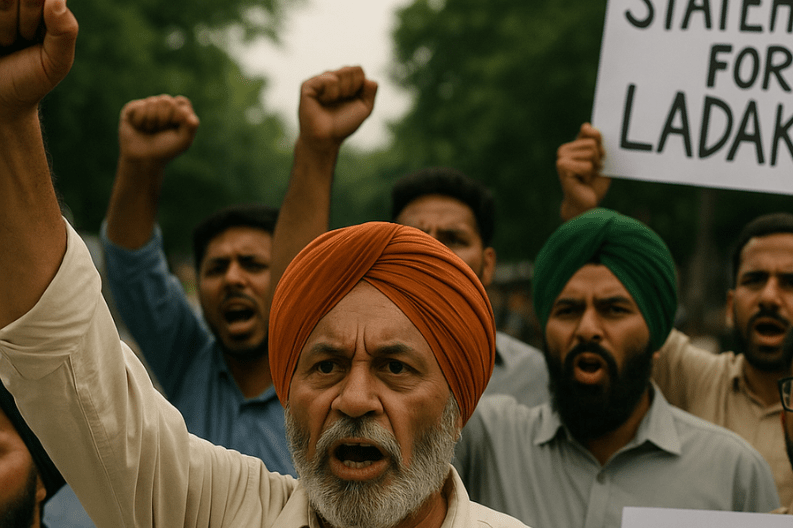In a major political move, the Kargil democratic alliance boycotts talks with centre and announced it would not engage in discussions until its demands were met. This decision supports the Leh Apex Body (LAB), which is also pushing for stronger rights in Ladakh. The announcement has added pressure on leaders in New Delhi at a time when tensions are already high.
On September 24, violence broke out in Leh and killed four people. Several others suffered injuries. This tragedy fueled calls for an independent judicial investigation. KDA co-chairman Asgar Ali Karbalai, speaking at the Press Club of India in New Delhi, stressed that peace will not return unless authorities ensure justice.
Karbalai said the KDA will not talk with the Centre until their conditions are met. One key demand is the full withdrawal of allegations against climate activist Sonam Wangchuk. Known for his work in education and the environment, Wangchuk enjoys nationwide respect. Karbalai also demanded the release of those arrested during the violence and pressed for a fair probe into the events.
He argued that the administration unfairly blamed Wangchuk and local residents for the unrest. According to him, peace and dialogue can only happen if the government treats Ladakh’s people with trust and respect.
Beyond immediate justice, the KDA and LAB also demand statehood for Ladakh. They want constitutional safeguards under the Sixth Schedule to protect Ladakh’s cultural and linguistic identity. These demands are not new, but they gained urgency after the recent unrest. Leaders argue that without autonomy and safeguards, Ladakh’s traditions may face serious threats.
The crisis has drawn national attention and sparked debate about governance in Ladakh. Many residents feel ignored since the region became a Union Territory. They worry about losing control over land, resources, and culture. Experts note that calls for statehood and protections come from long-standing concerns about identity in a changing political environment.
Historically, Ladakh is known for its culture, beauty, and peaceful communities. Yet, recent political changes created dissatisfaction. People fear that without legal protection, their way of life may collapse.
During the press conference, Karbalai rejected the Union Territory administration’s claim that locals caused the unrest. He defended Sonam Wangchuk, calling him a respected leader unfairly targeted. He warned that such accusations would only deepen mistrust.
As emotions rose, the KDA called for unity among Ladakhis. Leaders believe solidarity is essential to push forward their agenda and secure real change. They hope the boycott will pressure the Centre to take demands seriously and open meaningful dialogue.
The situation in Ladakh remains tense. Residents continue to demand justice and recognition of their rights. Observers believe the Centre’s response will set the tone for Ladakh’s future. The KDA insists it will maintain pressure until the government takes concrete steps.
In conclusion, the Kargil democratic alliance boycotts talks with centre to highlight urgent demands for justice, autonomy, and cultural protection. The coming weeks will decide whether leaders truly hear the voices of Ladakh’s people.



